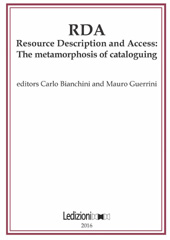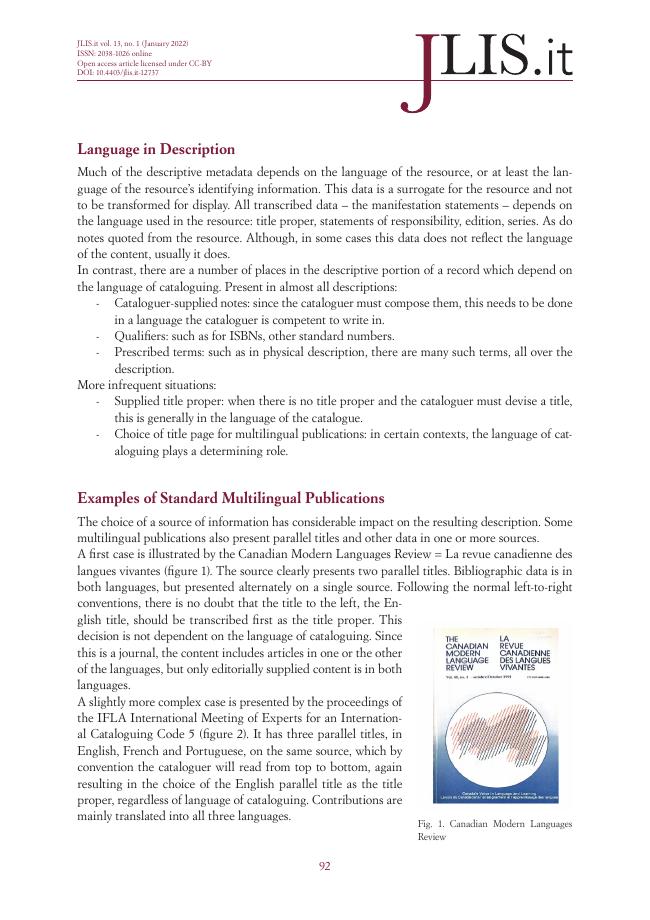The multilingual challenge in bibliographic description and access
86-98 p.
Cataloguing has taken many steps towards greater internationalisation and inclusion, but one area remains stubbornly intractable: providing transparent access to users despite differences in language of descriptive cataloguing and language of subject access. As constructed according to present cataloguing practices, bibliographic records contain a number of language-dependent elements. This may be inevitable, but does not have to impede access to resources for a user searching in a language other than the language used for cataloguing. When catalogues are set up as multiple unilingual silos, the work of bridging the language barrier is pushed onto the user. Yet providing access through metadata is supposed to be the role of the catalogue.
While a full theoretical approach to multilingual metadata is elusive, several pragmatic actions can be implemented to make language less of a barrier in searching and interpreting bibliographic data. Measures can be applied both in the creation of the metadata, and in adjusting the search. Authority control, linked authority files, and controlled vocabularies have an important part to play. Examples and approaches from the context of a newly established catalogue shared by a consortium of English language and French language university libraries in QueÌÂbec, Canada. [Publisher's text].
-
Artículos del mismo número (disponibles individualmente)
-
Información
Código DOI: 10.4403/jlis.it-12737
ISSN: 2038-1026
KEYWORDS
- Multilingual catalogues, Bilingual cataloguing, Bilingual publications, Language of cataloguing



